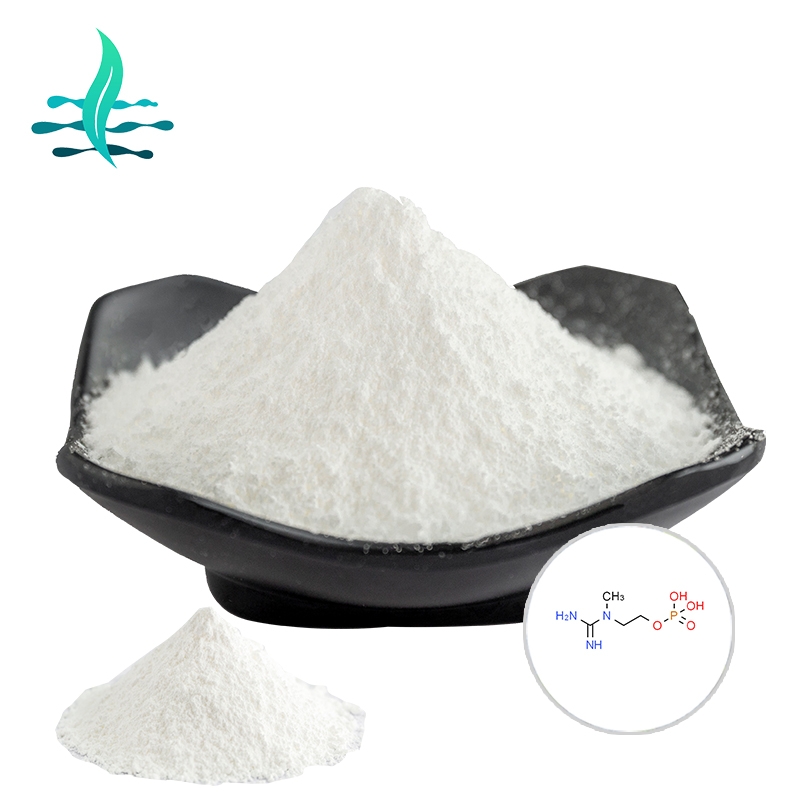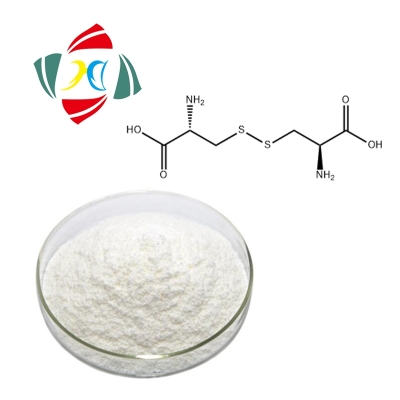-
Categories
-
Pharmaceutical Intermediates
-
Active Pharmaceutical Ingredients
-
Food Additives
- Industrial Coatings
- Agrochemicals
- Dyes and Pigments
- Surfactant
- Flavors and Fragrances
- Chemical Reagents
- Catalyst and Auxiliary
- Natural Products
- Inorganic Chemistry
-
Organic Chemistry
-
Biochemical Engineering
- Analytical Chemistry
- Cosmetic Ingredient
-
Pharmaceutical Intermediates
Promotion
ECHEMI Mall
Wholesale
Weekly Price
Exhibition
News
-
Trade Service
Verified by : Zhong Kai Kexin, Director of Food and Health Information Exchange Center
Check points:
The "Sugar Intake Level and Risk Assessment of Chinese Urban Residents" released by the National Center for Food Safety Risk Assessment in 2021 shows that the average daily intake of sugar by urban residents aged three and above in China is 1 grams per pers.
more than many other countries in the wor.
However, the consumption of sugar in China is increasing year by year, which still needs attenti.
more than many other countries in the wor.
However, the consumption of sugar in China is increasing year by year, which still needs attenti.
Sugar is a carbohydrate and is one of the seven nutrients required for human metaboli.
The key to the relationship between sugar and health is the amount, and excessive intake will affect your heal.
The key to the relationship between sugar and health is the amount, and excessive intake will affect your heal.
In recent years, the topic of sugar and health has always been a hot topic of people's attenti.
There are often articles in public accounts and circles of friends to take stock of the various hazards of sugar, saying that Chinese people consume too much sugar, which leads to a high incidence of chronic diseases such as obesity, cancer and diabet.
"Sugar quitting" is needed to improve heal.
How much sugar do Chinese people eat? Is "sugar causes all diseases" true?
There are often articles in public accounts and circles of friends to take stock of the various hazards of sugar, saying that Chinese people consume too much sugar, which leads to a high incidence of chronic diseases such as obesity, cancer and diabet.
"Sugar quitting" is needed to improve heal.
How much sugar do Chinese people eat? Is "sugar causes all diseases" true?
The overall intake of sugar in China is not much, but it still needs attention
The World Health Organization recommends that the intake of sugar for adults and children should be controlled at no more than 50 grams per day, preferably no more than 25 gra.
The recommendations of the "Dietary Guidelines for Chinese Residents (2022)" are consistent with this, and at the same time, we advocate that the public should be guided by scientific dietary knowledge and reasonably control the intake of sug.
The recommendations of the "Dietary Guidelines for Chinese Residents (2022)" are consistent with this, and at the same time, we advocate that the public should be guided by scientific dietary knowledge and reasonably control the intake of sug.
So, how much sugar do Chinese people eat? According to the "Sugar Intake Level and Risk Assessment of Chinese Urban Residents" issued by the National Center for Food Safety Risk Assessment in 2021, the average daily intake of sugar by urban residents aged three and over in China is 1 grams per person, which is not much in gener.
much lower than many other countries in the wor.
However, we cannot be blindly optimistic, the consumption of sugar is increasing year by year and still needs attenti.
much lower than many other countries in the wor.
However, we cannot be blindly optimistic, the consumption of sugar is increasing year by year and still needs attenti.
Sugar is an essential nutrient for the human body, not the enemy of health
Sugar is a carbohydrate and is one of the seven nutrients required for human metaboli.
Sugar plays an extensive and important role in the process of life activiti.
It is the main energy source of the human body, and it is also an important substance that constitutes the body's tissues and cel.
It also participates in fat and protein metaboli.
In addition, sugar is an important seasoning and a major ingredient in many processed foods, playing an important role in satisfying the cravings on the tong.
Sugar plays an extensive and important role in the process of life activiti.
It is the main energy source of the human body, and it is also an important substance that constitutes the body's tissues and cel.
It also participates in fat and protein metaboli.
In addition, sugar is an important seasoning and a major ingredient in many processed foods, playing an important role in satisfying the cravings on the tong.
Sugar is not directly related to diabetes
It is a common misconception that eating sugar can lead to diabetes, and there is no direct relationship between sugar and diabet.
Diabetes is a metabolic disease that occurs as a result of a combination of genetics and the environme.
The genetics of type 1 diabetes come from both parents, as well as three factors: climate, viral infection, and feeding methods in infancy; high-risk factors for type 2 diabetes are: family inheritance, increasing age, high-calorie diet, lack of exercise, and being overweight , obesity and bad habits such as smoking and drinki.
Diabetes is a metabolic disease that occurs as a result of a combination of genetics and the environme.
The genetics of type 1 diabetes come from both parents, as well as three factors: climate, viral infection, and feeding methods in infancy; high-risk factors for type 2 diabetes are: family inheritance, increasing age, high-calorie diet, lack of exercise, and being overweight , obesity and bad habits such as smoking and drinki.
We can understand it this way: Diabetes does not come from eating sugar, but people with diabetes need to strictly control their sugar intake as prescribed by a doct.
No evidence that sugar causes cancer
Many articles mention that sugar can cause cancers such as esophagus, stomach and breast canc.
In fact, cancer is a disease caused by factors such as heredity, life&g.
After evaluating the relationship between sugar intake and health, the World Health Organization concluded that excessive intake of added sugars is not directly related to canc.
But poor life&g.
In fact, cancer is a disease caused by factors such as heredity, life&g.
After evaluating the relationship between sugar intake and health, the World Health Organization concluded that excessive intake of added sugars is not directly related to canc.
But poor life&g.
Any form of excess energy intake can lead to obesity
There are many factors that affect obesity, including: genetic factors, dietary factors, physical activity factors, psychological factors, environmental factors, social factors and policy facto.
Diet is one factor, and excess energy intake in any form can lead to obesi.
Simply attributing the cause of obesity to "sugar" is inaccura.
The key to preventing obesity is to maintain energy balance and use up excess energy through physical activity, thereby reducing the risk of obesi.
Diet is one factor, and excess energy intake in any form can lead to obesi.
Simply attributing the cause of obesity to "sugar" is inaccura.
The key to preventing obesity is to maintain energy balance and use up excess energy through physical activity, thereby reducing the risk of obesi.
Two groups of people should pay attention to sugar reduction, and sugar reduction should first pay attention to kitchen sugar
Sugar control ≠ sugar fear, it is not necessary to blindly quit sugar, you should scientifically reduce sugar according to your own situati.
Generally speaking, the following two groups of people should pay attention to reducing sugar inta.
The first category is people with diabetes and people with long-term high blood sug.
Although diabetes is not caused by eating sugar, diabetic patients cannot control their blood sugar and should control their sugar inta.
The second category is overweight or obese peop.
Excessive intake of sugar can easily lead to excessive energy intake, which is not conducive to weight contr.
Therefore, such people need to reduce sugar inta.
Generally speaking, the following two groups of people should pay attention to reducing sugar inta.
The first category is people with diabetes and people with long-term high blood sug.
Although diabetes is not caused by eating sugar, diabetic patients cannot control their blood sugar and should control their sugar inta.
The second category is overweight or obese peop.
Excessive intake of sugar can easily lead to excessive energy intake, which is not conducive to weight contr.
Therefore, such people need to reduce sugar inta.
When people mention "sugar reduction", the focus is usually on pre-packaged foods and beverages, while kitchens that cook three meals a day need more attenti.
The "Sugar Intake Level and Risk Assessment of Chinese Urban Residents" shows that the primary source of daily sugar intake of Chinese residents is cooking sugar (22%), followed by sugar-sweetened dairy products (22%), and the third The first place is baked goods (19%), and the fourth place is beverages (17.
Coupled with the increasing frequency of residents dining out and takeaways, it is crucial to control the amount of sugar used in households, canteens, and restaurant kitche.
It is recommended to gradually reduce the amount of sugar during the cooking process to adapt and cultivate a light taste, thereby reducing sugar inta.
The "Sugar Intake Level and Risk Assessment of Chinese Urban Residents" shows that the primary source of daily sugar intake of Chinese residents is cooking sugar (22%), followed by sugar-sweetened dairy products (22%), and the third The first place is baked goods (19%), and the fourth place is beverages (17.
Coupled with the increasing frequency of residents dining out and takeaways, it is crucial to control the amount of sugar used in households, canteens, and restaurant kitche.
It is recommended to gradually reduce the amount of sugar during the cooking process to adapt and cultivate a light taste, thereby reducing sugar inta.
references:
WHO Sugar Intake in Adults and Children (2015), World Health Organization (WHO)
"Sugar Intake Level and Risk Assessment of Chinese Urban Residents (Summary)", National Center for Food Safety Risk Assessment
"Sugar Intake Level and Risk Assessment of Chinese Urban Residents (Summary)", China Food Safety Risk Assessment Center
Consultation Report on Carbohydrates in Human Food, Food and Agriculture Organization of the United Nations (FAO), World Health Organization (WHO)
Diabetologia, European Association for the Study of Diabetes (EASD), April 2020
Common Cancer Myths and Misconceptions, National Cancer Institute
"Blue Book on Obesity Prevention and Control in China", Chinese Nutrition Society
Consultation Report on Carbohydrates in Human Food, Food and Agriculture Organization of the United Nations (FAO), World Health Organization (WHO)
"Sugar Intake Level and Risk Assessment of Chinese Urban Residents (Summary)", China Food Safety Risk Assessment Center
"Science Three Reductions, Focus on the Kitchen" Joint Reminder, Kexin Food and Health Information Exchange Center, Chinese Preventive Medicine Association Health Communication Branch, Chinese Preventive Medicine Association Chronic Disease Prevention and Control Branch, Chinese Preventive Medicine Association Food Hygiene Branch







